Canadian defense attorney Dennis Edney is involved in four of the cases we are currently covering. WL Central has received updates from him on three of them.
Moazzam Begg, a high profile advocate for Guantanamo inmates and international lecturer and author, was denied board on a direct Air Canada flight from London to Toronto on the grounds that the plane could possibly be diverted to the US where Begg is on a no-fly list. Begg, a British citizen, was imprisoned in Guantanamo for three years and released in 2005 with no charge. Edney had invited him to Canada to speak.
You were attempting to get him a flight over the north pole to avoid the excuse of a possible diversion into US air space - has there been any response from the Canadian authorities on that?
We have attempted to get clarification from Canadian authorities to state whether they would challenge his entry if he took a flight over Greenland so no fear of being close to U.S. airspace - with no clarification.
Who exactly have you spoken to in the Canadian government or Air Canada regarding this policy?
We have spoken to people at the Canadian High Commission and I have asked Moazzam to go to the London office to get an official response why he was not allowed to fly.
He was to attend 3 conferences in Toronto/ Montreal and Edmonton.
Abdullah Khadr, older brother of Omar, won against the Canadian government's appeal on May 6. The Canadian government was arguing in support of the US government who are trying to extradite Abdullah based on testimony obtained under torture. Edney represents both Khadrs.
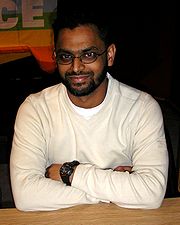 Moazzam Begg, a British citizen who was held at Guantanamo Bay for three years with no charge, was barred from boarding an Air Canada flight to Toronto today. Omar Khadr's defense attorney, Dennis Edney, had invited Begg to speak at a conference on fear and justice in Toronto on Saturday as well as other events in Quebec and Edmonton later this week.
Moazzam Begg, a British citizen who was held at Guantanamo Bay for three years with no charge, was barred from boarding an Air Canada flight to Toronto today. Omar Khadr's defense attorney, Dennis Edney, had invited Begg to speak at a conference on fear and justice in Toronto on Saturday as well as other events in Quebec and Edmonton later this week.
The Canadian Press reports that the Canadian High Commission refused permission on the basis the plane could be re-routed to the U.S. Edney contacted the high commission and was told to contact the US embassy. Edney told the Toronto Star that a Canadian foreign affairs official informed him that Begg was denied entry due to a “U.S. policy.”
Begg was released from Guantanamo Bay in 2005 and is one of the most high profile advocates for the people currently imprisoned there. He wrote a book, Enemy Combatant: A British Muslim's Journey To Guantanamo and Back (ISBN 0-7432-8567-0), is a director of Cageprisoners, and has given many interviews and lectures, written articles, and appeared as a commentator on BBC's Panorama, BBC's Newsnight, PBS's The Prisoner, Al-Jazeera's Prisoner, Taking Liberties, Torturing Democracy, and National Geographic's Guantanamo's Secrets, traveling throughout the world to do so. He has never been charged with anything. He was released by the US.
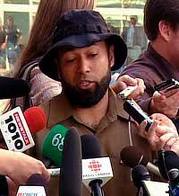 Photo credit: CBC
Photo credit: CBC
In the post 9/11 frenzy there was immense pressure brought by the US government on the Canadian government to ensure that terrorists were not crossing the world's longest border to attack the US. That pressure is clear in the US state cables, and it led to many highly questionable activities by the Canadian government, such as submitting names of their own citizens to the infamous US suspect lists, lists that Maher Arar is still on, even after being cleared of all wrongdoing and apologized to by Canada, as well as awarded 10.5 million dollars and one million in legal costs.
Canada was also under urgent pressure to seek out and prosecute any terrorists at home, which led to the tracking and capture of the Toronto 18 in 2006. Much about this case has been widely criticized over the years. The decision by the federal government to cancel the preliminary inquiry and proceed directly to trial, denying the defense the opportunity to hear the Crown's case, and, more importantly, the chance to cross examine the crown's star witnesses is one controversial element. A preliminary hearing is not a necessary component of a trial, but it is unusual to schedule one and cancel abruptly halfway through. Defense attorneys said they had made concessions to have the right to cross examine these witnesses and they were incensed at the change. And of course, the question rose, never to be put to rest, of what the federal government was afraid of in not allowing the preliminary cross examination.
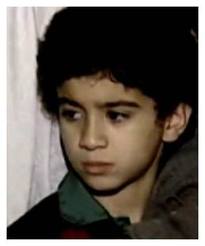 "There would be virtually no political blowback domestically for the Conservative Party if the government chooses to pursue an appeal, making this a strong likelihood.”
"There would be virtually no political blowback domestically for the Conservative Party if the government chooses to pursue an appeal, making this a strong likelihood.”
The above statement from US State cable #09OTTAWA629 sums up the last decade of Omar Khadr’s life. The Canadian government, under the last three prime ministers, two Liberal and one Conservative, have done nothing about the plight of a tortured fifteen year old Canadian boy imprisoned with no trial in the world’s most notorious torture camps. They have contributed nothing to his education, nor to his emotional or psychological welfare. They have expressed no concern for his well being. They have not requested his repatriation, nor have they requested that the illegal and amoral conditions of his confinement be improved. (Read a summary of the conditions here.) US State cable 09STATE11937 describes a February 5, 2009 meeting between French Foreign Minister Bernard Kouchner and US Secretary of State Clinton, where the French Foreign Minister requested that the US review his case, but there is no similar suggestion from the country with a legal obligation to defend him.
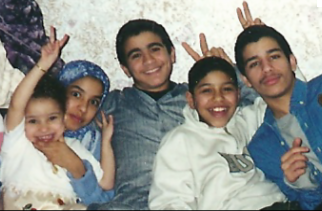 Omar Khadr (centre in the picture at left) was born in Toronto, Canada on September 19, 1986. His father was an Egyptian born Canadian who ran charities to provide food and education for orphans, and was an old friend of Osama Bin Laden. His mother was a Canadian of Palestinian descent. Omar spoke four languages fluently. When he was 15, his family sent him to accompany a group as a translator. The US military identified that group as Al Qaeda.
Omar Khadr (centre in the picture at left) was born in Toronto, Canada on September 19, 1986. His father was an Egyptian born Canadian who ran charities to provide food and education for orphans, and was an old friend of Osama Bin Laden. His mother was a Canadian of Palestinian descent. Omar spoke four languages fluently. When he was 15, his family sent him to accompany a group as a translator. The US military identified that group as Al Qaeda.
In July 2002, US Special Forces attacked the camp where he was staying. When US military entered the site, Omar was buried face down under rubble, blinded by shrapnel and crippled. Another man was beside him. US military documents say a US militant stood on top of Omar's body before realizing that someone was buried beneath. The first US fighter to arrive on the scene shot the man beside Omar dead and then shot Omar twice in the back, leaving two large exit wounds in his chest and chunks of his chest and shoulder ... blown out. He was somehow identified as being the son of his father, either before or after a second US militant prevented the first from shooting him again. He was consequently captured instead.
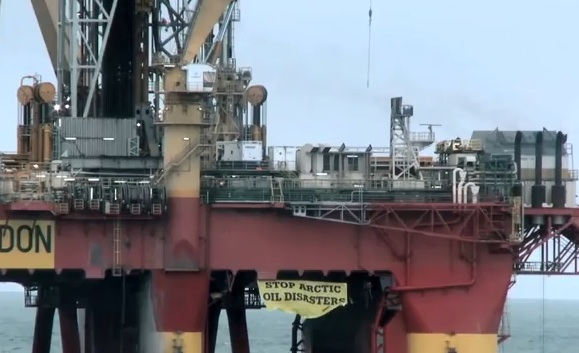 BBC’s report on US State Embassy cables from WikiLeaks detailing the “hidden agenda” of northern Arctic states has led Greenpeace to call “on the Arctic Council to place an immediate moratorium on industrial exploitation within the area that has historically been covered by sea ice.”
BBC’s report on US State Embassy cables from WikiLeaks detailing the “hidden agenda” of northern Arctic states has led Greenpeace to call “on the Arctic Council to place an immediate moratorium on industrial exploitation within the area that has historically been covered by sea ice.”
Truls Gulowsen, Arctic campaign leader for Greenpeace Nordic, writes, “What the Arctic needs in this time of extreme external pressure is a protection against additional threats from dangerous shipping, oil exploitation, bottom-trawling, over-fishing and other destructive industrial practices.” Gulowsen also points out the “more immediate and more dangerous safety issue” is that moves into the “fragile Arctic to drill for oil” will create a threat of oil spills and likely impact the marine environment.
The Financial Times post on the cables highlights some of the noteworthy revelations in the cables:
On May 7, an estimated 30,000 - 50,000 people marched in downtown Toronto to call for decriminalization of marijuana in Canada. This cause in Canada is not just for marijuana users (despite being an obvious proponent of legalization, or at least decriminalization, this writer is not a smoker). The importance of Canada's drug laws is not just the perceived object, but all that gets swept up under the umbrella of the 'drug war'. Exactly as the 'war on terror' allowed a complete disregard of national and international law, 'pre-emptive wars' and excusable torture, and the new wars on copyright infringement and child pornography are being used to justify governments seizing control of the internet and denying citizens their right to privacy, so has the much older drug war allowed the US to override the sovereignty of American countries and impose their own laws on them.
The provincial courts have been calling Canada's marijuana laws unconstitutional since 2000 and Canada was the first country to adopt a system regulating the medicinal use of marijuana. In 2002, Prime Minister Jean Chretien promised decriminalization, while his government also looked at amnesty for the 600,000 Canadians convicted of possessing marijuana. Both amnesty and legalization were recommended by a senate committee, and decriminalization was seen as a safe 'middle ground'. Not middle enough for the Bush administration however, and their threatened reprisals caused the slow death of the plan. As reported earlier on WL Central, political activist Marc Emery was not only extradited to the US for something that is not a serious crime in Canada, contrary to even the one-sided Canada-US extradition agreement, but he was denied a transfer back to Canada after one year, contrary to the sentencing judge's recommendations, because of "law enforcement concerns." In other words, he would not be in jail in Canada for something he did in Canada, which is not a crime in Canada, so they kept him.
In his quest to make Canada unrecognizable, newly powerful Prime Minister Stephen Harper is hoping to change all that. He is not attempting to assert Canada's authority to create and enforce its own laws, but he is trying to bring Canada's drug laws and enforcement in line with that of the US. Ten days into his new majority, the Supreme Court of Canada is hearing a case Harper's federal government is bringing against Vancouver supervised injection site Insite. Insite is North America’s first legal supervised injection site. The BC Ministry of Health Services provides operational funding for Insite through Vancouver Coastal Health, which operates the facility in conjunction with PHS Community Services Society. Insite operates on a harm-reduction model, which means it strives to decrease the adverse health, social and economic consequences of drug use without requiring abstinence from drug use.
Vancouver has a drug problem. Anyone who has been to the emergency ward in any of the hospitals in Vancouver has seen how that drug problem affects Vancouver's health services. The Ministry of Health is a provincial responsibility and the costs associated with running Insite are borne by the province, as are the costs of not running Insite. Some say that Insite is none of the federal government's business. Those would be the people who supported its founding in 2003 and its exemption from Section 56 of the Controlled Drugs and Substances Act ever since. Those people would not include Stephen Harper. In his quest to bring the drug war to Canada, to impose mandatory minimum sentencing and build huge new prisons to 'keep our streets safe', Harper does not have any sympathy with people preventing drug addicts from dying, no matter how much taxpayer money they save. He is, in fact, willing to spend tax dollars arguing his case all the way up to the Supreme Court.
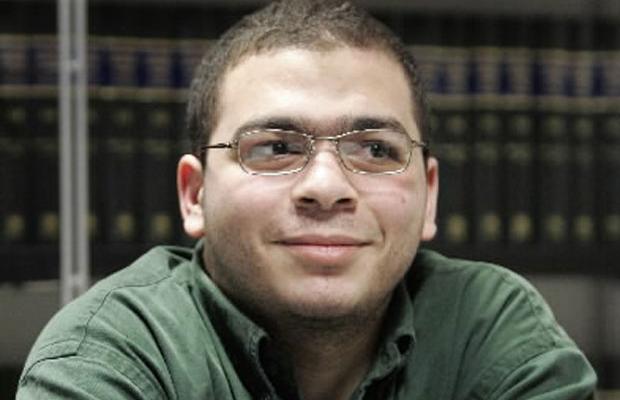 In December 2005, Abdullah Khadr, older brother of Omar, Abdurahman and Abdul Karim Khadr and younger brother of Zaynab, returned to his home in Toronto, Canada after fourteen months of being held in a Pakistan prison without charges. One week later he was arrested in Canada and held without bail, pending extradition to the US. The US had earlier obtained information from the Taliban which suggested to them Abdullah may have been the suicide bomber who killed a Canadian soldier in Kabul in January 2004. In an interview with CBC News on Feb. 25, 2004, Abdullah Khadr said, "If I was the suicide bomber, I wouldn't be doing this interview with you right now."
In December 2005, Abdullah Khadr, older brother of Omar, Abdurahman and Abdul Karim Khadr and younger brother of Zaynab, returned to his home in Toronto, Canada after fourteen months of being held in a Pakistan prison without charges. One week later he was arrested in Canada and held without bail, pending extradition to the US. The US had earlier obtained information from the Taliban which suggested to them Abdullah may have been the suicide bomber who killed a Canadian soldier in Kabul in January 2004. In an interview with CBC News on Feb. 25, 2004, Abdullah Khadr said, "If I was the suicide bomber, I wouldn't be doing this interview with you right now."
This time he was indicted in the US on charges of supplying weapons to Al Qaeda in Pakistan. In August 2006, Khadr's lawyer Dennis Edney filed an application to stay the extradition proceedings, arguing that the US government's evidence against Khadr was inadmissible because it relied on information gathered under torture in Pakistan. Khadr was held in a detention centre for the next five years until his release last August when the stay was granted and the presiding judge called his treatment "both shocking and unjustifiable."
 The recent Canadian election has been the topic of much foreign news coverage, with pundits trying to explain why liberal-minded Canada has given a majority to the most right leaning party in its history, what exactly the New Democratic Party is, and why on earth Canada turned its back so firmly on its 'traditional ruling party', headed by a man described in the Guardian as "known to the British as a fine writer, historian and BBC talking head, who had returned to Canada to lead the Liberals". Embassy Magazine wrote an astoundingly condescending piece about Canada's lack of interest in foreign policy which contained the following:
The recent Canadian election has been the topic of much foreign news coverage, with pundits trying to explain why liberal-minded Canada has given a majority to the most right leaning party in its history, what exactly the New Democratic Party is, and why on earth Canada turned its back so firmly on its 'traditional ruling party', headed by a man described in the Guardian as "known to the British as a fine writer, historian and BBC talking head, who had returned to Canada to lead the Liberals". Embassy Magazine wrote an astoundingly condescending piece about Canada's lack of interest in foreign policy which contained the following:
Given Liberal leader Michael Ignatieff's background, many had expected him to campaign on foreign policy. And at the start of the campaign he did try to frame the election around the question of ethics, especially the tenor of Conservative foreign policy. ... But ... Mr. Ignatieff failed to inspire with this foreign policy-tinged message. In fact, the more he talked about it, the less traction he seemed to be getting with centrist or progressive voters. ... At one point, the Liberal leader's frustration became quite evident, with Mr. Ignatieff wondering why Canadians were not latching onto the many controversies that had dogged the Conservatives before the election. Mr. Ignatieff's plea that Canada should regain its international standing was a version of this idea that the country should be undergoing some soul-searching prior to voting. But with his historic low, it appears Canadians weren't up for that sort of deep think.
 Photo credit CBC.
Photo credit CBC.
As Stephen Harper thanked his constituents for electing him for the fifth time in nine years, and started the second half of what will now be at least a nine year term in office, onlookers could be forgiven for wondering where was all the upheaval in Canadian politics the media had been talking about.
Well, it was there. Everything changed, except the result. There are 308 seats in the House of Commons, and this is where they went.
 The second largest country in the world has an interesting law under Section 329 of Canada's Elections Act:
The second largest country in the world has an interesting law under Section 329 of Canada's Elections Act:
No person shall transmit the result or purported result of the vote in an electoral district to the public in another electoral district before the close of all of the polling stations in that other electoral district.
Polls close at different times across Canada's six time zones, and media are prevented from broadcasting results from the east to provinces in the west that are still voting, under threat of a $25,000 fine. This probably seemed like a good idea in 1938. While CBC has gone so far as to close their comments, Twitter hashtag #TweetTheResults has been threatening for weeks to do just that. Many very interesting questions would apply in that case, such as, what if people from outside the country tweet the results? Is it against the law to tweet results to people in your time zone? Is it against the law to tweet codenamed results? And many more that we will probably discover in the next few hours.
The object of the ban is ostensibly to prevent people from being unduly influenced by the earlier vote which raises the question of whose business it is what information people use to inform their vote. It is more likely however, that Elections Canada do not wish people west of Ontario to be reminded just how little their vote matters. Of 308 seats in the House of Commons, 106 are in Ontario and 75 are in Quebec. The territories get one each, Manitoba and Saskatchewan 14 each, Alberta 28, and possibly Elections Canada feels that by the time British Columbia gets to their 36 they will just head for the pub instead.
In any event, the #TweetTheResults stream is below the crease, so if you feel you may be unduly influenced by anything true or false which someone may or may not post on Twitter, do not continue reading.
Update: Website tweettheresults.ca just posted the following after removing their tweetstream:
a few minutes ago, this site was home to a conversation about the role of social media in Canadian elections. It was set up to aggregate the tweets (messages posted to Twitter) that include the hashtag #tweettheresults. That's how people across Canada and around the world have been tagging their reflections on Section 329 of Canada's Elections Act, which severely restricts the transmission of voting results until all polling stations have closed. We hoped that this site would provoke a conversation about Section 329, and raise the profile of the issue across Canada. We think it's done that, both on the social web and in the mainstream media.
But that conversation became illegal at 7 pm EST this evening. Rather than face a potential fine or protracted legal battle, we have taken this site offline for 3 hours. When free speech returns to Canada at 10 pm EST, the site will be back online and you will be able to read all the tweets that have accumulated in the interim.
If you tweet about this situation, please use the hashtag #tweettheresults so it will appear here.
To follow the conversation while this Canadian site is offline, you can still view all the latest tweets by searching for #tweettheresults on Twitter.
We never imagined a day when Canadians would have to use a foreign website to participate in a conversation about our own country. We never imagined that we, Canadian citizens, would potentially face legal penalties for our role in supporting an online conversation. We hope that all Canadians who have exercised their voice at the polls today will reclaim those voices online by asking the next government to bring our Elections Act into the 21st century.
Update 2: Elections Canada has some bigger problems to deal with this year. Voters have been getting phone calls telling them to go to the wrong polling stations. Current Prime Minister Stephen Harper has been campaigning on election day in defiance of Elections Canada regulations. And Elections Canada themselves have suffered poor organization that has cost voters their opportunity to vote. When they have finished shutting down websites we would suggest they direct their attention to curtailing the Prime Minister.
Update 3: At 6 PM PST, #tweettheresults was trending third worldwide.
Update 4: At 6:30 PM PST, #tweettheresults was trending first worldwide and Atlantic Canada is fourth.
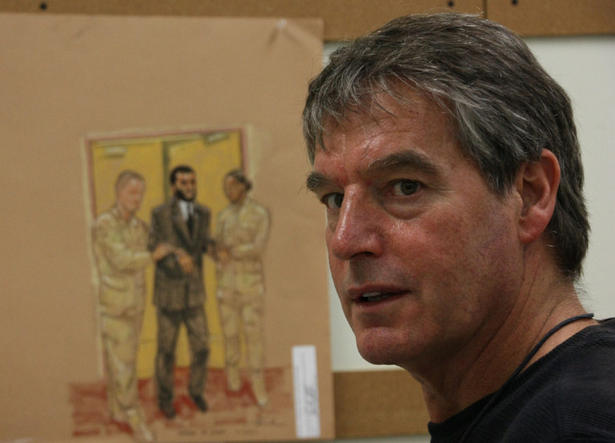
Co-authored by Alexa O'Brien
WL Central's Heather Marsh spoke this week to Dennis Edney, the Canadian defense counsel for Guantanamo inmate Omar Khadr. Following is an excerpt from the interviews.
Photo credit: Colin Perkel / The Canadian Press
Transcript:
Have you read the Wikileaks release ... the Guantanamo file on Omar Khadr?
Yes.
Do you have any observations on that?
Of course. I do. What is it that I should say about that? Well, the one thing that is striking is how unreliable the evidence is to keep people in Guantanamo Bay. So much of the evidence relied upon and detaining people in Guantanamo Bay is second-hand hearsay, unreliable, and not the kind of evidence that would stand up in any court of law, proper court of law.
What a lot of people got ... or a lot of the media got out of Omar Khadr's report is that he was being treated not so much as a criminal, but as an intelligence asset because of his family.
Which is quite ... Absolutely. And what does it suggest? What intelligence does a fifteen year old boy have? What it was is that he was being held there because of his father. So, that's what they were looking for ... information about his father ... and so, his son has been left to rot in Guantanamo Bay because the Americans want to know about the father.
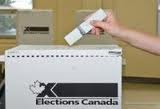 As pollsters and pundits all agree that none can guess what the votes, much less the seats will look like after the May 2 election, almost all of the possibilities are anything but straightforward. A Conservative majority would be straightforward, and may happen. Ontario controls 106 of Canada's 308 seats and is subject to a three way vote split in many ridings. The latest EKOS seat projection states it is conceivable that the Conservatives could back into a majority with just slightly more than one-third of the overall votes. This would see the Conservatives in power until they call another election.
As pollsters and pundits all agree that none can guess what the votes, much less the seats will look like after the May 2 election, almost all of the possibilities are anything but straightforward. A Conservative majority would be straightforward, and may happen. Ontario controls 106 of Canada's 308 seats and is subject to a three way vote split in many ridings. The latest EKOS seat projection states it is conceivable that the Conservatives could back into a majority with just slightly more than one-third of the overall votes. This would see the Conservatives in power until they call another election.
Other than that, here are the options likely now:
1. The Conservatives win a minority government. This we have seen for five years. The Conservatives will then be open to another non confidence vote, which may bring their government down for a third time. They were not able to pass their budget in March so would probably have to bring it before the House soon. Or not. One idea from Murray Dobbin:
Canada is currently ranked eighth or ninth in the world among organizations which claim to measure the state of democracy. The parliamentary democracy practiced in Canada is something that the citizens of many dictatorships are trying to implement. The current government of Canada has been accused several times of holding lightly the democratic principles Canada is governed by, and last month the current government was actually found in contempt of parliament, the first time this has occurred in the history of the Commonwealth. That same current government is projected to win either a minority or majority government on Monday, prompting constitutional expert Peter Russell to ask below, "Does Canada treasure its parliamentary democracy?"
As the world's fourth oldest parliamentary democracy, Russell would like Canadians to be aware of the basic principles of democracy at stake in this election. He describes parliament as being set up so that the monarch was required to disclose their spending and finds the prospect of electing a prime minister found in contempt of parliament for not revealing his spending to be a far bigger issue than 'partisan bickering'.
Just in time for the federal election in Canada, Wikileaks has released 2222 cables about the Canadian government. With two days until the election, this is a crowd sourcing job.
Wikileaks has asked people to post their findings on reddit or you can tweet them with the following hashtags (in order of importance): #Elxn41 #wlcan #Cdnpoli
Or you can add them to the comments below.
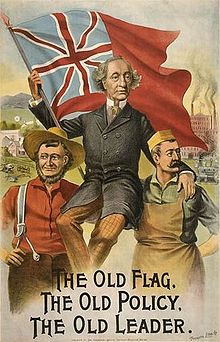 Canada has a federal election on May 2. While there is nothing new in that, there have been four called in the last seven years, this is already easily the most interesting one of the four. It started when MPs voted 156-145 to find the government in contempt of Parliament, a first in the history of the Commonwealth. They brought down the government on March 25 to force another election, something Prime Minister Harper called "a dangerous and unnecessary exercise." Harper's Conservative Party of Canada, a coalition between Canada's old right leaning conservative party and the newer and much farther right leaning Reform Party, has been governing with a precarious minority since 2006. Harper prorogued Parliament for three months in 2008 to avoid a vote of confidence, and once in 2010 to cripple the Afghan detainee investigation, and the government was still brought down twice.
Canada has a federal election on May 2. While there is nothing new in that, there have been four called in the last seven years, this is already easily the most interesting one of the four. It started when MPs voted 156-145 to find the government in contempt of Parliament, a first in the history of the Commonwealth. They brought down the government on March 25 to force another election, something Prime Minister Harper called "a dangerous and unnecessary exercise." Harper's Conservative Party of Canada, a coalition between Canada's old right leaning conservative party and the newer and much farther right leaning Reform Party, has been governing with a precarious minority since 2006. Harper prorogued Parliament for three months in 2008 to avoid a vote of confidence, and once in 2010 to cripple the Afghan detainee investigation, and the government was still brought down twice.
Michael Ignatieff, the leader of Canada's Liberal party, frequently referred to as "the natural ruling party of Canada" due to their time spent in power, said "There are only two alternatives here. More of this disrespect for democracy, more of this contempt for the Canadian people, or a compassionate, responsible Liberal government." That seemed a reasonable statement, considering that some form of the Liberal or Conservative parties (and once a coalition of the two) have governed Canada since confederation. So reasonable that he used it to rebut his opponents in the leadership debate; "But Jack, at least we get into government," he replied, although no one really was expecting anything other than another Harper minority or perhaps a Harper majority. (Harper renamed the government of Canada "the Harper Government.")
The best situation the people who hate Harper could envision was another minority government which would then be brought down again, but hopefully this time the opposition would form a coalition. People have turned to creative ideas for the Anyone But Harper campaign, including vote swapping and a huge amount of grass roots campaigning on social media and other venues. The Canadian and international media alike have decreed that voting for a party other than the big two was downright irresponsible as it would 'split the vote' and give Harper a majority. Harper is campaigning, not to be elected, but for a majority, and his attacks are directed primarily against a coalition.
The first Canadian Guantanamo file released was Omar Khadr, a much anticipated and very thin file that discussed the captured child's intelligence value as a son of a suspected Al Qaeda member and contributed nothing else of value or accuracy. (Except in this file, the 'medic' he was accused of killing in his trial is accurately described as a Special Forces soldier.)
The second widely anticipated Canadian file is that of 'Abdul Khadr', assumed to refer to Abdurahman Khadr, Omar's brother who has claimed he was in Guantanamo as a CIA plant. He was one of the ten detainees whose information was not included in the 2007 files published by the US Department of Defense under the Freedom of Information Act. Unfortunately the file does not match biographical details of any of the Khadr family (there are brothers Abdulkareem and Abdullah as well, but neither was ever in Guantanamo).
Jason Leopold, deputy managing editor of Truthout.org, tweeted "ive discovered that at least 1 of the photos in #Guantanamo files is not the detainee identified by military/govt. No idea who the person is"
So not only is all of the information about the suspects highly suspect, obtained from unreliable and tortured testimony and mistaken identities, some of the files are not even who they are labeled as.
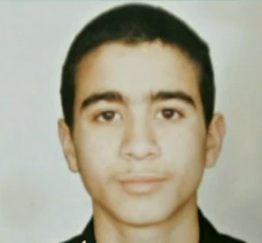 *With research assistance from Heather Marsh
*With research assistance from Heather Marsh
Pakistani national Naqib Ullah (also Naqibullah) was 14 years old and out doing an errand for his father when he was kidnapped from his village in Khan, Afghanistan by 11 men that called themselves, “Samoud’s people.” The men, according to Ullah, “forcibly raped him at gunpoint”. He was taken back to the men’s village encampment and “forced to do manual work.”
Ullah was in the camp for three days when, in December 2002, US forces raided the camp. The group had been forewarned. They ordered Ullah and others to stay behind and fight US forces. He was captured and had a weapon but it had not been fired. He was transported to Guantanamo Bay, Cuba in January 2003 because the military believed he might have knowledge of “Taliban resistance efforts and local leaders.”
This teenager is just one of twenty-two juveniles who wound up in Guantanamo. And, with the release of the Gitmo Files by WikiLeaks, more details on the capture, transfer, detention and release of juvenile detainees are becoming known.
Article 1 of the UN Convention on the Rights of the Child defines a child as “every human being below the age of eighteen years unless under the law applicable to the child, majority is attained earlier.”
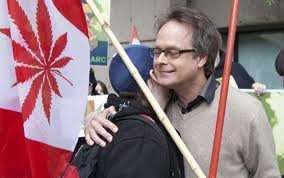 Vancouver native Marc Emery, was today denied a transfer to Canada to serve the final four years of his five year sentence. Emery's lawyer Kirk Tousaw said US authorities told his client that the US government refused his transfer on April 6 despite a recommendation from his sentencing judge that he be transferred and despite his meeting all the requirements, due to the “seriousness of the offence” and “law enforcement concerns.”
Vancouver native Marc Emery, was today denied a transfer to Canada to serve the final four years of his five year sentence. Emery's lawyer Kirk Tousaw said US authorities told his client that the US government refused his transfer on April 6 despite a recommendation from his sentencing judge that he be transferred and despite his meeting all the requirements, due to the “seriousness of the offence” and “law enforcement concerns.”
Marc's serious offense is selling marijuana seeds by mail to the US, a serious offense on the US side of the border, where the law equates one marijuana seed to one plant to 100 kilos of marijuana, but almost never prosecuted in Canada where seed shops are common, and the last conviction was against Emery in 1998 when he was fined $2,000. In fact on Wednesday, an Ontario court struck down Canada's laws that prohibit the possession and growing of marijuana as unconstitutional. The judge suspended his ruling for three months, to give the federal government time to appeal or respond; if they are unsuccessful, marijuana will be legal to possess and cultivate in Ontario in three months, which will set precedent for all of the other provinces. That would explain why the US has "law enforcement concerns," as Emery in Canada would have no chance of being in jail, much less serving repeated solitary confinement. According to the US - Canada Extradition Treaty, extradition applies only in cases where the “offenses are punishable by the laws of both Contracting Parties by a term of imprisonment exceeding one year.”
 Next: We got Obasanjo to anoint Yar'Adua, says Saraki
Next: We got Obasanjo to anoint Yar'Adua, says Saraki
"Contrary to the belief that former President Olusegun Obasanjo personally hand-picked late President Umaru Yar'Adua as his successor, a United States diplomatic cable obtained by Wikileaks and made available exclusively to NEXT, has detailed how a group of governors led by Bukola Saraki, the Kwara State governor, worked behind the scene to pressure Mr. Obasanjo into anointing the former Katsina State governor as his replacement.
No other person than Mr. Saraki himself gave the account of the political intrigues that threw up the late president to a former US Consul General, Brian Browne."
Aftenposten: MP CRITICIZES JAPANESE NUCLEAR PLANS
"Lower House Diet Member Taro Kono voiced his strong opposition to the nuclear industry in Japan, especially nuclear reprocessing, based on issues of cost, safety, and security during a dinner with a visiting staffdel, Energy Attache and Economic Officer October 21. Kono also criticized the Japanese bureaucracy and power companies for continuing an outdated nuclear energy strategy, suppressing development of alternative energy, and keeping information from Diet members and the public. He also expressed dissatisfaction with the current election campaign law."
Aftenposten: CLIMATE CHANGE: EMISSION IMPOSSIBLE: NPP SHUTDOWN EXACERBATES JAPAN´S KYOTO TARGET BIND
Theme by Danetsoft and Danang Probo Sayekti inspired by Maksimer